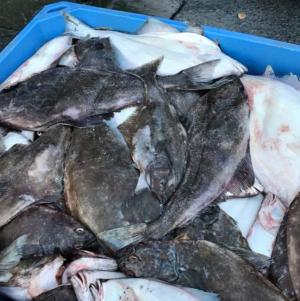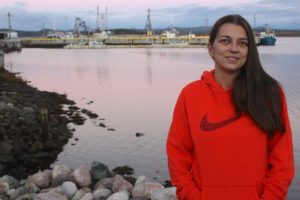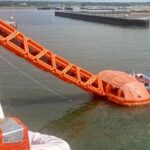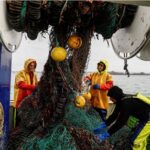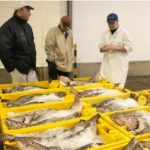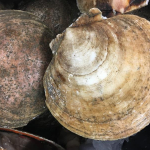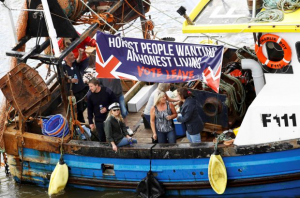Monthly Archives: May 2018
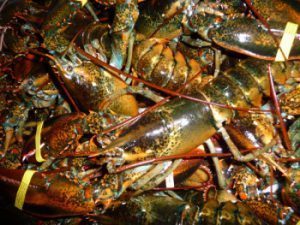
Something smells
Prince Edward Island and northern Nova Scotia fishermen are scratching their heads in bewilderment these days over lower-than-expected prices for spring lobster. At the halfway point in the season, it’s well past time for some straight answers from buyers, processors and shippers. All market factors heading into the May 1 opening indicated a strong season for prices, certainly matching, if not surpassing, 2017. Yet, the latest fish price report indicates otherwise. The price per pound for canner lobster ranges between $5 and $5.50, while markets are fetching $6 to $6.50. That’s a $1 drop since opening day and about $1 less than last year — comparable with prices paid in 2002. >click to read<17:44
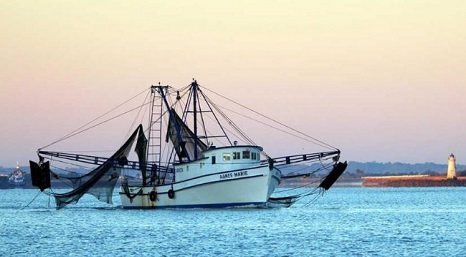
Chatham County requests disaster declaration for shrimpers
In a letter sent Tuesday to Secretary of Commerce Wilbur Ross, Chatham County Commission Chairman Albert J. Scott makes the request citing the fact that federal waters were closed to shrimping over the winter and spring because of unusually cold water. The closure, which affected the shrimping area from 3 to 200 miles offshore, was meant to protect the remaining population of spawning shrimp after an expected die off from the cold. State waters closest to shore have also been closed since mid-January, though that’s a typical closure. Scott recognized the necessity of the closure but said it still imposed a hardship. ″ >click to read<16:21
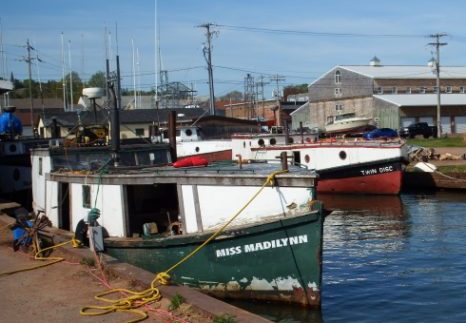
More Fishing Tugs 7
This road trip was partly about seeing more fish tugs, the focus of the next few posts. One of the current hubs of fishing tugs still fishing is the Bayfield Peninsula, jutting out of northern Wisconsin into Lake Superior. Bayfield still had chunk ice in the harbor on May 9! Let’s start out at Bodin Fisheries, and the docks there. Photo’s, >click to read<14:36
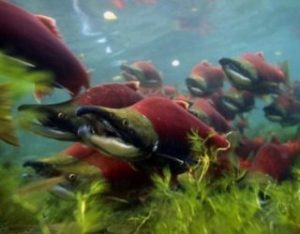
Norton Sound: Expect Strong Salmon Runs This Summer
Salmon runs in the Norton Sound area are expected to be at least as strong as last year, with the exception of king, or Chinook, salmon. That’s according to Jim Menard, the Norton Sound and Kotzebue area fisheries manager for the Alaska Department of Fish and Game. “We think things are going good. And we just don’t want to be surprised with another crash. The sun’s shining right now, and we’re counting on a good year. The only long-term trend we’ve seen is the downward spiral of the king salmon.” >click to read<14:01
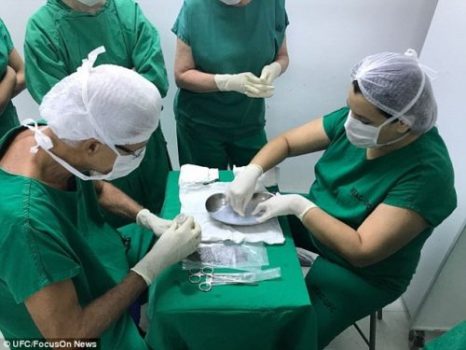
23year Old Lady Born Without Vagina Has One Made Out Of Fish Skin (Photos)
A 23-year-old university student who was born without a vagina, has become the first in the world to undergo pioneering surgery that constructed a new vaginal canal out of fish skin. According to Mirror, the operation took place at the Federal University of Ceara (UFC), Brazil. The girl was diagnosed in her teens with having no cervix, uterus, ovaries or womb. Jucilene Marinho has now spoken for the first time and talked about how the revolutionary operation using skin of the tilapia fish has changed her life and allowed her to have sex for the first time. >click to read<11:43

Editorial: Will wind energy deliver?
It sounds very promising as do a lot of the carefully worded highlights on the Vineyard Wind’s “Benefits” page. “Vineyard Wind’s turbines, totaling up to 800 MW, are expected to reliably produce the amount of energy used by over 450,000 Massachusetts homes. Offshore wind delivers much of its power in the winter, when Massachusetts needs the most energy for both heat and electricity generation.”,,, But there is a lot of greenwashing going on in the renewable energy world. “Greenwashing” is essentially the spreading of disinformation by an organization to present an environmentally responsible public image. It’s a good word to know. So let’s look at the questionable aspects of wind energy. >click to read<11:01
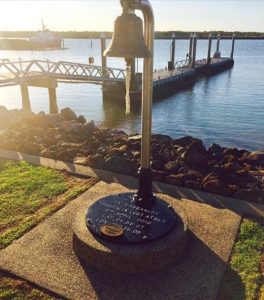
What no one talks about when a loved one goes missing
It has been two years since Matthew Roberts vanished after his commercial fishing trawler capsized near Fraser Island from an unknown cause. After five days of air and sea searches Matthew’s wife, Cheryl, accepted he could not have survived the incident. “I resigned myself to the fact that he wasn’t coming home that night, it’s a big sea out there,” she says. Cheryl dealt with the devastation and grief of losing her husband but she wasn’t prepared for the administrative and bureaucratic trouble that would follow his disappearance. “I cannot get access to Matthew’s super money to help me because we do not have a death certificate,” she explains. >click to read<09:42
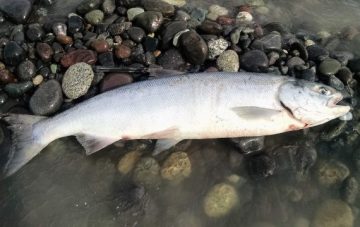
Copper failure
The commercial fishing season for Copper River salmon – the most coveted of Alaska fish – is shaping up as a disaster for the isolated fishing community of Cordova. Prices paid to fishermen are now reported at $9.50 per pound for prime fish, but there just aren’t many fish to be had and most of them are small. “Absolutely unprecedented” is how Stormy Haught, the area research biologists for Alaska Department of Fish and Game described the situation Wednesday. Haught is well aware of the long, detailed history of Cooper River commercial fisheries because he’s been back through all the data looking for a parallel to this season that might indicate to fishery managers how they can expect the run to play out going forward. >click to read<08:18
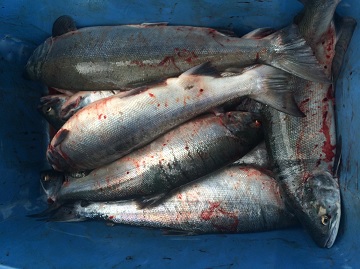
Copper River sockeye run likely to fall well below forecast
The Copper River commercial sockeye fishery is likely to fall below forecast for the second year in a row. The Alaska Department of Fish and Game closed one of the fishery’s 12-hour openings last week due to low escapement and abysmal harvest levels. That trend continued this week with a slow fishing period on Monday, and the department announced Wednesday that it’s closing the fishery on Thursday for the second week in a row. >click to read<07:40
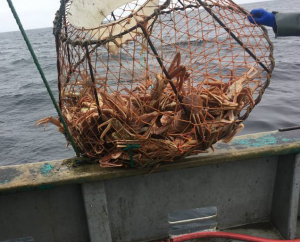
Ice and weather causing problems for Northern Peninsula crab fishers
In a normal season fish harvester Ronald Patey of Englee would have caught his crab quota by now. However, bad weather and ice are causing problems for crab harvesters on the Northern Peninsula so far this fishing season. Patey of Englee made his first crab-fishing trip on May 17. “It’s unreal how slow going it is,” said Patey. “I believe my first trip last year we hauled up 2,800 pounds. Our first trip this year we hauled up 700 pounds.,,, The situation is a little better for St. Anthony fisherman Jamie Rose. >click to read<20:13
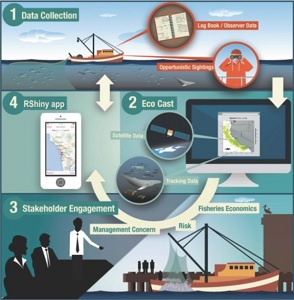
New tool improves fishing efficiency and sustainability
Called EcoCast, the experimental tool developed by researchers at Stanford and other universities combines satellite data of ocean conditions, records from fisheries observers and species tracking data to pinpoint ideal fishing areas on a daily basis. Resource managers can adjust the weighting of each species as risks change and the fishing season progresses. This helps fishers optimize their harvest of target fish, while reducing the risk of inadvertently catching and killing sensitive species. >click to read<16:47
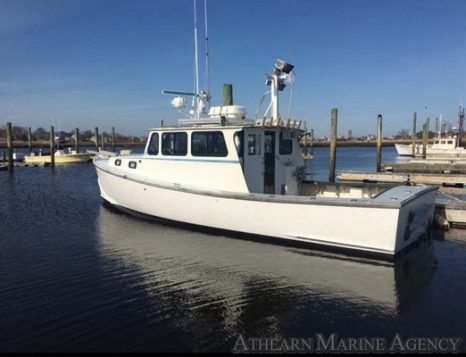
Athearn Marine Agency Boat of the Week: 35ft’ Tuna/Lobster/Charter, 450HP Cummins
Specifications, information and 37 photos >click here< To see all the boats in this series, >Click here<14:11
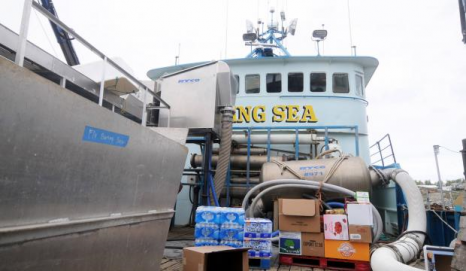
Snug Harbor’s fishing tender has a long history in crabbing
Commercial fishermen delivering to Snug Harbor Seafoods are attended by a tender vessel with a long history and more equipment than it needs for the job. The Bering Sea, owned by Snug Harbor Seafoods, is a 114-foot retired crabbing boat of iron/steel alloy built in 1973 and originally homeported in Washington state. With wooden decks and the company’s logo emblazoned on its side, it dominates the end of the dock in the Kenai River as workers stocked it with groceries and worked to get it ready for the upcoming season last Friday. >click to read<13:49
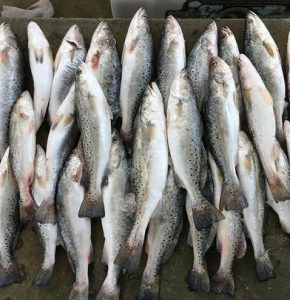
Mississippi says commercial speckled trout catch underreported, ends season
Mississippi Department of Marine Resources Executive Director Joe Spraggins announced Tuesday that the second half of the state’s commercial fishing season for speckled trout, a much-sought species along the Gulf Coast, won’t happen. That’s because officials believe commercial fishermen didn’t fully report their catches from the first half of the season. Spokeswoman Melissa Scallan said the closure doesn’t affect recreational and charter fishermen, who must adhere to certain size limits for speckled trout. Normally, Mississippi has two seasons in state waters for the saltwater fish — one from Feb. 1 through May 31 and another running from June 1 to Oct. 31. >click to read<10:22
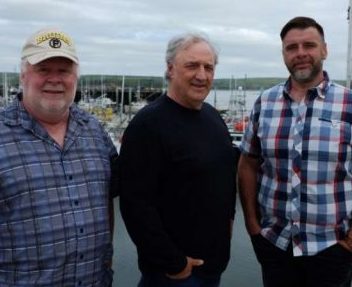
N.S. Fishermen call on government officials to crack down on lobster poaching
Bernie Berry glances across the wharf in Digby, N.S., as several fishing boats stop alongside for crews to offload their catch. As the season for this lobster fishing area — one of the most lucrative in Canada — prepares to close on the last day of May, it’s bringing with it a flurry of activity. Berry and others here hope the hustle and bustle of fishing isn’t replaced with negative activity come June 1. “Everyone knows what’s going on,” he said. “This kind of stuff has been going on for years.” >click to read<
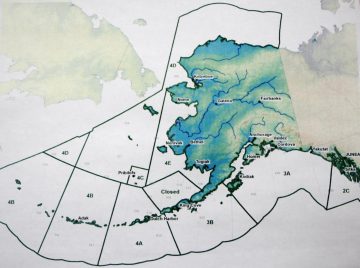
One month into the season, Bristol Bay halibut fishermen harvest a quarter of the quota
Bristol Bay fishermen have landed 8,700 pounds of halibut so far. This year’s quota for area 4-E is 33,900 pounds, significantly less than last year’s quota of 58,800 pounds. “It is a reduction,” said Gary Cline, the regional fisheries director at BBEDC. “It’s basically because there appears to be less halibut abundance in the Pacific, not just in area 4-E, but stretching down to southeast and throughout the Bering Sea. And, because of this concern, the regulatory agencies have adopted a more restrictive catch limits for 2018.” >click to read<08:22
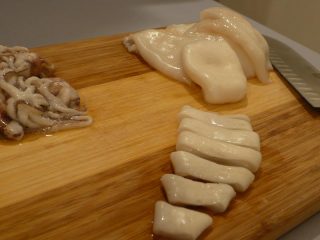
New MA Offshore Wind Farm Could Jeopardize Squid Fishery
Members of the commercial fishing community are worried a proposed utility-scale offshore wind farm in Massachusetts could impact Rhode Island’s lucrative squid industry. Massachusetts recently selected a project bid from Vineyard Wind to construct and deploy 100 turbines about 15 miles off the coast of Martha’s Vineyard in a federal wind energy area. However, Meghan Lapp, spokeswoman for a Rhode Island-based commercial fishing company called Seafreeze Ltd., said the project, which requires underwater cables to connect the project to the regional electricl grid, was sited directly through and adjacent to squid fishing grounds. >click to read<07:52
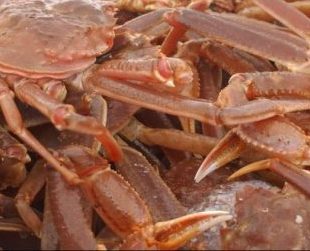
‘Everybody’s losing’: Crab fishermen prepare for more closures this week
With nine more fishing areas to close this week as endangered whales arrive in the Gulf of St. Lawrence, New Brunswick snow crab fishermen are braced for a turbulent season. “We don’t know what’s going to happen today, tomorrow and for the coming days,” said Jean Lanteigne, general manager of the Regional Federation of Professional Fishermen, based in Shippagan. On Wednesday at 4 p.m., nine more “grids” or portions of grids will close to protect North Atlantic right whales from getting tangled up in fishing gear. That number is in addition to the six that closed last week. “It’s impossible to fish in there,” said Lanteigne. >click to read<18:01
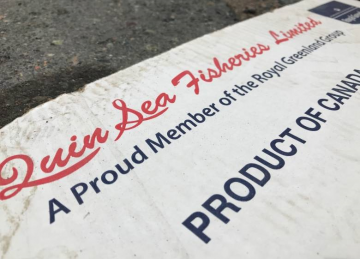
Suffocating lobster: Licence suspended for Quin-Sea operation in Southern Harbour
Seafood inspectors with the provincial fisheries department converged on the Quin-Sea Fisheries operation Tuesday, fastening yellow caution tape to the wharf with the words “under detention” in black letters. Tethered just outside the wharf and floating on the surface were more then 100 plastic crates, each capable of handling up to 100 pounds of live lobster. Sources say thousands of pounds of lobster have died recently at the site because of what was described as an “overcrowding” of lobster stored in a nearby holding pen. >click to read<17:23
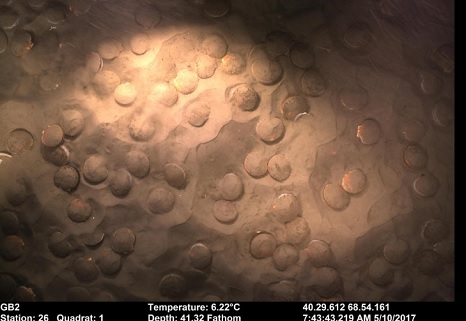
Don Cuddy: Mattapoisett company moving fishing tech forward
Sometimes a chat over a fence is all it takes to set great things in motion. Fairhaven resident Karl Edminster was talking with his neighbor, marine researcher Emily Keiley, when she mentioned that SMAST had an underwater cable that had suffered damage on a fisheries survey cruise. She knew Karl’s job had something to do with electrical work. He said he’d take a look. In fact, Karl is the president of Elecrtromechanica, a high tech design and build engineering outfit based in Mattapoisett. They spliced the cable. “But we told them we do more than fix cables,” >click to read<15:04
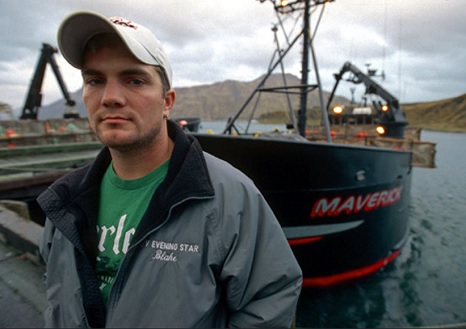
‘Deadliest Catch’ Captain Blake Painter found dead at home
Blake Painter — best known for being a captain on seasons 2 and 3 of “Deadliest Catch” — has died, and police are testing substances found at the scene of his death. Law enforcement sources tell TMZ Painter’s body was discovered Friday in his Oregon home. We’re told a friend of Painter’s became concerned after not hearing from him for a few days … so he called the police. Officers gained entry, and determined Painter had been dead for several days. >click to read< 13:56
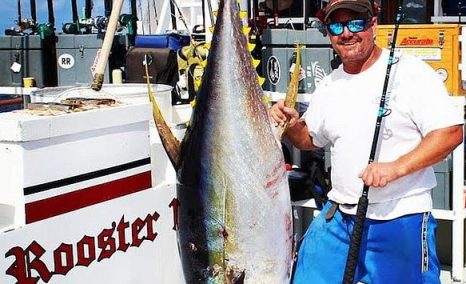
Boat busted
On May 22, the California Department of Fish and Wildlife posted on their Facebook page that read in part that in September of 2017, their officers made a “significant over-limit bust on the captain of the commercial passenger fishing vessel, Red Rooster, out of San Diego Harbor. “…. the vessel’s captain (Christian Andrew Cates), plead guilty to possession of fish illegally taken outside the state and importation of fish without declaration. He was sentenced to five days of public service work and $40,000 in fines, $37,000 of which has already been paid to the court.” >click to read<12:04
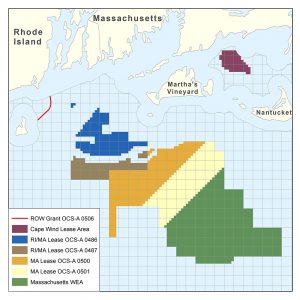
New R.I. Offshore Wind Project Missing Details
The Revolution Wind project was chosen through a shared bidding process with Massachusetts. Key details, such as cost, the power-purchase agreement, job creation, and work to be done in Rhode Island, will be revealed when Deepwater Wind files its contract with the Public Utilities Commission this summer.,, The coordination between Massachusetts and Rhode Island in the offshore wind bidding process went mostly unnoticed by the media.,, Deepwater Wind didn’t respond to a request for comment. But in the past 18 months, the renewable-energy developer has hyped its investment in New Bedford, Mass., >click to read<10:19
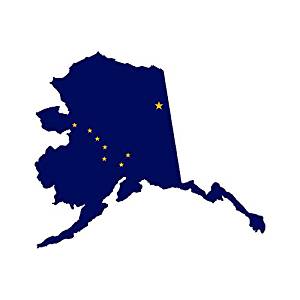
Alaska lawmakers call for alliance with other states on Canadian mining issues
A group of Alaska lawmakers wants to team up with Montana and other U.S.-Canada border states in a push to protect Southeast watersheds they say are threatened by rapid Canadian mining development. In a letter dated April 20 and released Friday, 10 lawmakers ask Gov. Bill Walker to work with other U.S. states and the State Department to further protections for Southeast’s salmon-bearing rivers. Canadian mining development, they say, has continued to put the region’s fishing and tourism industries in peril. >click to read<09:15
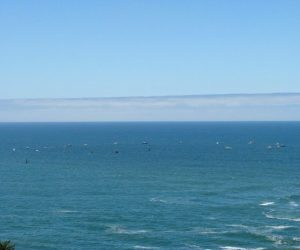
Fleet of Flowers – Depoe Bay on Memorial Day 2018
On Memorial Day, each year since 1945, Depoe Bay has hosted the FLEET OF FLOWERS. This colorful ceremony is recognized as one of the most impressive observances held in the United States. The event was initiated to honor the memories of two fishermen, Roy Bower and John Chambers, who died at sea in an attempt to aid another fisherman. 3 Patty Kuhn Photos >click to read<18:21
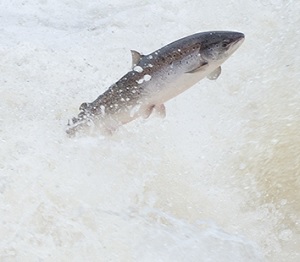
Conservation deal halts commercial salmon fishing in Greenland for 12 years
A deal has been reached that will halt commercial salmon fishing in Greenland and the Faroe Islands for the next 12 years to allow adult wild Atlantic salmon to return to rivers in Canada, the United States, and Europe. The coastal waters of Greenland and the Faroe Islands are critical feeding grounds for the salmon, and many come from endangered populations in rivers like the Saint John in New Brunswick and the Penobscot in Maine. “Significantly reducing the harvest of wild Atlantic salmon on their ocean feeding grounds is meaningful and decisive,” said Bill Taylor, president of the Atlantic Salmon Federation. >click to read<
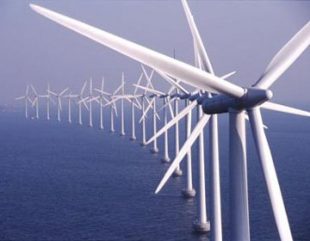
Looking for Reasons Why Wind Power Can Never Work? Here’s the Top 21
It doesn’t take a genius to work out that wind power is the greatest economic and environmental fraud of all time. All it takes is a little cognitive power and a sense of inquiry. Once people work out that they’ve been conned, they never turn back. In our travels we’ve met plenty who’ve started out in favour of wind power and turned against it; we’ve never found an example of the reverse. STT dishes up the facts on a daily basis, much to the annoyance of the wind cult. Anyone looking for a solid set of reasons as to why wind power can never work, need look no further than this cracking little list put together by John Droz. >click to read<14:13
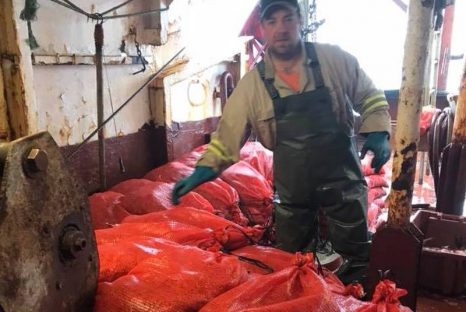
Phenomenal catch rates – Northern Peninsula harvesters and union rep calling for shrimp policy change
Shrimp harvesters across area 5-12 of the 4R zone are still seeing phenomenal catch rates. Many fishermen, including Jason Spence of Port au Choix, are now expecting to have their quotas caught by the end of May. “I got 314,000 pounds of shrimp to catch and I’m going to have that caught in four weeks,” said Spence. “That’s not something we’ve seen in six or seven years.” As reported in an initial Northern Pen story, Anchor Point harvester Roland Genge and others credit this success to a policy established by the fishers in the 4R region to not catch shrimp in April – despite the Department of Fisheries and Oceans (DFO) policy to open the fishery on April 1. >click to read<11:57






